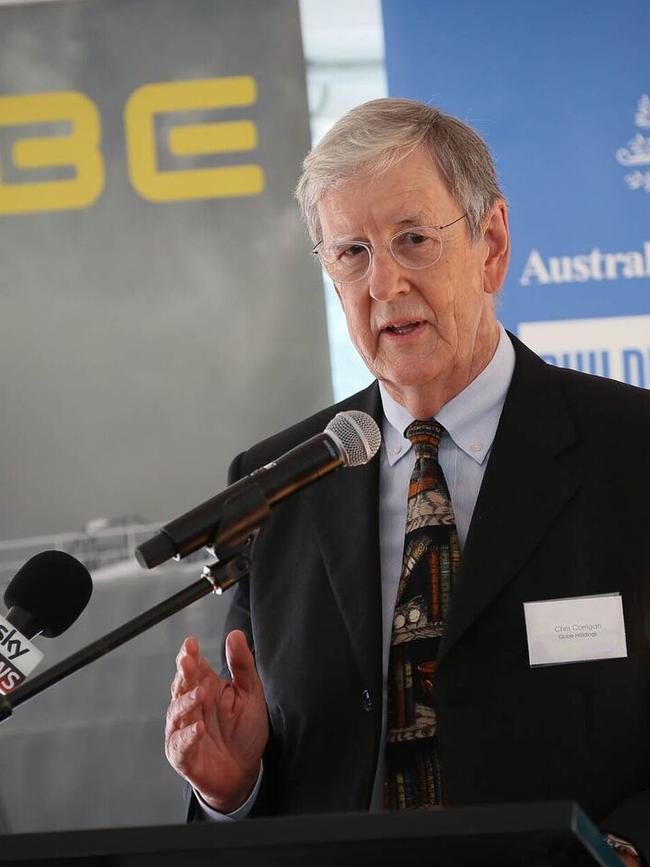
ACSI, here’s your hat, what’s your hurry?
Alas, the only way to reform corporate governance in this country is to abolish the whole council. Begone. Vamos. And tear up its flawed governance rules. Then grab a blank sheet of paper to start over.
Enormous kudos is due to respected fund manager John Wylie. He’s so fed up with the ASX Corporate Governance Council, he has done the hard yards himself, drafting new corporate governance principles.
“The whole thing needs to go back to first principles,” Wylie told The Australian over the weekend. “I’ve been saying this for ages.”
Wylie says the ASX should take control of governance rules, given its business is to foster a thriving public stockmarket and to help – not hinder – the national economy to grow. Palming governance off to this council has been bad for the country.
“They (the ASX) need to retake control of the process and design it with a few fundamental objectives in mind.”
The ASX Corporate Governance Council has dealt itself out of the governance debate. Controlled by pseudo-culture warriors, rent-seekers and activists, it has become a de facto combined legislator and regulator doing an end run around parliament and ASIC without democratic warrant or legitimacy. It duplicates functions already comprehensively performed, and much better, by the Corporations Act and those who draft and administer it.

The council is collectively responsible for confusing directors about their duties, blurring lines of management accountability and ensuring that maximising shareholder wealth is no longer paramount. It has played politics at the expense of prosperity.
Provided to The Australian, Wylie’s Short Form Modernised Set of Corporate Governance Principles is a return to basics – seven pages long, a far cry from 63 pages proposed by the ASX Council with a July start date.
Wylie has rejected political fads in favour of sound corporate governance principles.
Each principle is clear, succinct and focused squarely on improving shareholder value – and underpinned by equally clear and simple objectives.
The first is to simplify. Principles should be less prescriptive and paternalistic. There should be “greater room for companies to apply common sense and business judgment, and tailor their governance arrangements to their particular needs and circumstances, while maintaining a core commitment to good corporate governance and maintaining confidence in market integrity”.
Second, the short form model wants to “reweight the principles back to established rules of corporate law”.
Third, governance principles must be better aligned “with the national interest of growing the Australian economy and the wealth of Australian investors, given that the stockmarket is one of our most important and democratic mechanisms serving those purposes”. That means more focus on performance, less on compliance. And more real skin in the game from directors and executives – that means buying shares with their own money.
Proper alignment between management and shareholders doesn’t come from gifting shares to those running the business.
The fourth objective is to “increase corporate accountability and shareholder democracy, as the flip side of greater discretion for companies in how they establish their governance arrangements”. Australia should follow best practice in Britain and the US, says Wylie, where all directors should be up for re-election every year.
Fifth, it’s time to recognise that the requirement for so-called independence of non-executive directors is out of date and clunky. Wylie says there is “a lack of evidence that companies whose boards are controlled by independent NEDs perform better than those that are not; and many of our best performing companies are controlled or strongly influenced by founders and do not meet traditional ASX governance best practice tests”.
Wylie’s principle for board composition is refreshingly simple. Directors should have the following qualities: ethics and integrity, business acumen, judgment, courage, aspiration for the growth and success of the company, independence of thought and action, and willingness to challenge groupthink and conventional wisdom, an understanding of the business and industry, or a willingness and aptitude to learn about it in depth.
When it comes to diversity, there’s more common sense: boards should be “diverse in their thought processes, life experiences, personal qualities and skills”. That’s it. No mention of gender. No gender reporting. No quotas, targets or other constraints.
You don’t have to agree with all of Wylie’s ideas to appreciate his suggestions are a major step forward. For example, his suggestion of annual elections for directors seems like a retrograde step – a gift for grandstanding activists and board short-termism.
Still Wylie’s principles should be taken very seriously.
Established in 2002 after massive corporate collapses such as Enron, the ASX Corporate Governance Council is a wretched example of the institutional capture that has been disastrous for corporate Australia and the country. Powerful members of the council quickly turned the body into a cash cow and a quasi-political force. They include activist investors at ACSI and the Association of Superannuation Funds of Australia, sellers of corporate governance courses at the Australian Institute of Company Directors, along with the peak industry bodies for accountants, lawyers and other consultants.
Each new edition of the ASX governance rules could never have got past parliament. Instead of lobbying politicians to secure change the honest way, these barrow-pushers took the low road, entrenching rules that they use to harass and bully companies into submission – making a motza along the way.
The council’s corporate prescriptions have been a windfall for others, too – think proxy advisers, DEI specialists and, of course, the “golden skirts” – women whose careers have depended on boards being forced to focus on gender rather than picking talent from a wider pool.

Frankly, too many women have been leading the charge or falling for bolshie social engineering by the ASX Corporate Governance Council. It gives women a poor reputation as dupes or bullies in this racket. It’s good to see Christine Christian, Debra Hazelton and Kate McKenzie joining a group of men calling for the hard-headed, economically rational return to basic principles.
Worse, this racket has hurt the Australian economy. Over the past decade, the number of listings on the Australian Securities Exchange has fallen. According to Peter Swan and Dimitri Burshtein over the past decade, the number of ASX-listed equities (domestic and foreign) fell by 4 per cent. September 2024 marked the first time in 20 years that the total number of ASX-listed equities fell below 2000. Money and talent are fleeing the stock exchange for private equity markets where the cultural colonisers have no influence.
Some years ago, Chris Corrigan told political warriors who control the ASX Corporate Governance Council to get lost when they tried to dictate the gender makeup of the Qube Holdings board, which he chaired. Very few companies are fortunate enough to have a brave Corrigan in charge. In fact, smart and talented people like Corrigan probably wouldn’t go near an Australian boardroom today, to say nothing of investing in Australian business.
Wylie is no Johnny-come-lately when it comes to freeing companies from activists and rent-seekers. His governance principles could reinvigorate corporate Australia – if more brave people follow suit and put the country first.




Here is some very good news. A meeting last Friday of corporate governance tsars couldn’t agree on the latest draft of the ASX corporate governance rules. Even better are reports that ACSI, the lobby group for industry super funds, apparently threatened to leave the ASX Corporate Governance Council.